★★
“Suffers from a mountain sense of disinterest.”
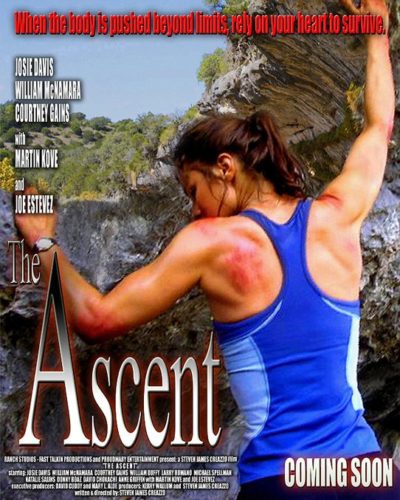 One year ago, the boyfriend of Emily Wilks (Davis) vanished, along with the mountaineering party he was taking on an ascent of the notoriously lethal Devil’s Peak summit. Emily is no mean climber herself, and still works as a trail guide on the mountain. But the group who have booked her services on this day have another motive: finding the legendary stash of gold they believe is hidden on the mountain, which they believe Emily knows the location. Unable to convince them it’s just a myth, she’s forced to lead the gang through the wilderness. Fortunately, it has many, many potential perils which can be used to thin the herd out.
One year ago, the boyfriend of Emily Wilks (Davis) vanished, along with the mountaineering party he was taking on an ascent of the notoriously lethal Devil’s Peak summit. Emily is no mean climber herself, and still works as a trail guide on the mountain. But the group who have booked her services on this day have another motive: finding the legendary stash of gold they believe is hidden on the mountain, which they believe Emily knows the location. Unable to convince them it’s just a myth, she’s forced to lead the gang through the wilderness. Fortunately, it has many, many potential perils which can be used to thin the herd out.
The IMDb contains a (suspicious?) number of reviews touting the merit of the “director’s cut” of this movie, over the officially released version. But with the former apparently unavailable, we can only review the latter – and it’s severely underwhelming stuff. Davis isn’t the problem, however. The makers choose an actress who actually looks like she could be a climber, with well-defined upper body tone and decent muscles, rather than possessing the twig-like limbs, still seen rather too often. Emily exudes a no-nonsense confidence which also fits her character, and is smart enough to know when to use her physical strength, and when not to.
The problem is… Well, more like the problems are, for just about everything else misfires. First of all, the “mountaineering” scenes are almost entirely shot in super close-up, presumably because the participants were dangling no more than three feet off the ground. It is all completely unconvincing and the movie offers absolutely no sense of danger from the terrain, at any point; far from needing a guide, this mountain looks far more like a literal walk in the park. Large chunks of the plot don’t make much sense either, such as the fight with ice axes which takes place in a desert. [This is perhaps because the makers originally intended to shoot in Alaska, then relocated to Texas – apparently, without bothering to revise the script!] The actions of the villains also often appear to fall into the crevasse marked, “Dumbness necessary to the plot”.
I’m reluctant to condemn completely a film which appears to have been the innocent victim of a tussle between the producer and director. But without access to any other version, the audience here are as much casualties as the movie. Who is responsible for the problems with the other elements, doesn’t matter much, in any final analysis from a neutral observer. You can sense where the writer-director wanted to go with this, and as noted above, I genuinely liked the lead. It isn’t enough, with the undercooked script and weak execution draining most of the film’s nascent promise.
Dir: S.J. Creazzo
Star: Josie Davis, William McNamara, Martin Kove, Martin Kove





 Maybe the makers of this should just have been honest, and called it Terminaliens. For the amount of wholesale theft that has gone on here is really quite staggering. It takes place in the nearish future after a weapons research program goes haywire, and the cyborg results start attacking humans all over the globe. It’s up to a band of freedom fighters to attack the central computer complex and disable the system before humanity is entirely wiped out. Through in an adorable moppet young girl, who falls under the protection of the heroine, along with some crawling through air-ducts, and you’ve got a homage to James Cameron – back when he was good, rather making three-hour epics about doomed icebergs.
Maybe the makers of this should just have been honest, and called it Terminaliens. For the amount of wholesale theft that has gone on here is really quite staggering. It takes place in the nearish future after a weapons research program goes haywire, and the cyborg results start attacking humans all over the globe. It’s up to a band of freedom fighters to attack the central computer complex and disable the system before humanity is entirely wiped out. Through in an adorable moppet young girl, who falls under the protection of the heroine, along with some crawling through air-ducts, and you’ve got a homage to James Cameron – back when he was good, rather making three-hour epics about doomed icebergs.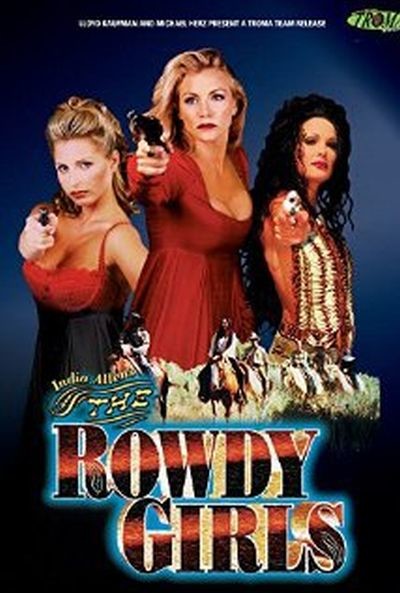
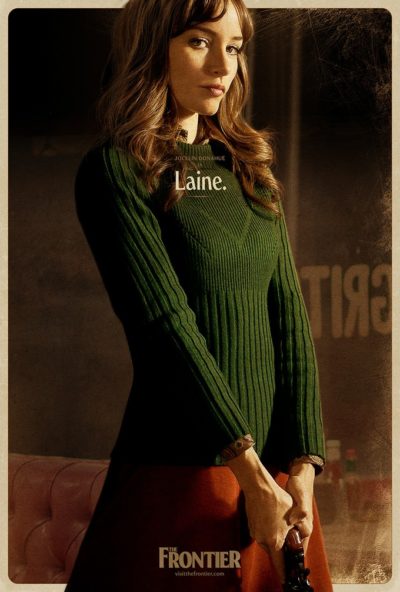 Laine (Donahue) is on the run. From what isn’t immediately clear, but it seems to be something to do with the death of an oil executive. Whatever the reason, she’s staying off the highways and keeping to the back roads. One morning, she wakes up beside The Frontier, a diner/motel owned and operated by Luanne (Lynch), who offers Laine employment, in return for board and lodging. Laine initially rejects the offer, then discovers some other guests are apparently there in the aftermath of an armoured car robbery, which netted them two million dollars. Laine therefore decides it’s in her best interests to stick around, and begins a game of chess with the perpetrators, to see if she can end up walking away with their ill-gotten gains.
Laine (Donahue) is on the run. From what isn’t immediately clear, but it seems to be something to do with the death of an oil executive. Whatever the reason, she’s staying off the highways and keeping to the back roads. One morning, she wakes up beside The Frontier, a diner/motel owned and operated by Luanne (Lynch), who offers Laine employment, in return for board and lodging. Laine initially rejects the offer, then discovers some other guests are apparently there in the aftermath of an armoured car robbery, which netted them two million dollars. Laine therefore decides it’s in her best interests to stick around, and begins a game of chess with the perpetrators, to see if she can end up walking away with their ill-gotten gains.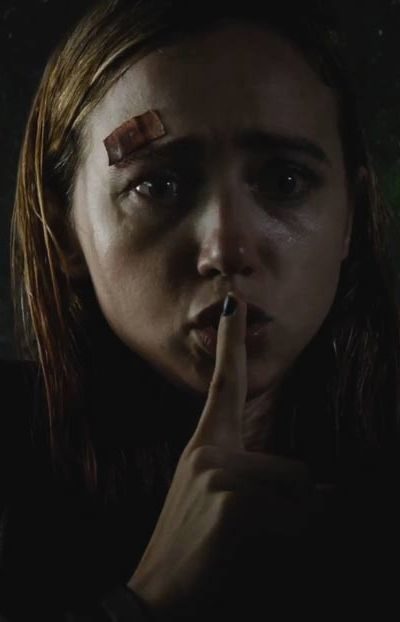 There is a time when a film-maker needs to fall out of love with their script, and approach the resulting movie with a cold, critical eye, analyzing every scene with a single question in mind: Is it essential to the story being told? And if the answer isn’t “Yes”, then the scene needs to be ruthlessly excised. If you don’t, then what results is this film, where a good idea, which could have been lean, mean survival horror at its most stripped-down, becomes instead a cumbersome exercise in social drama.
There is a time when a film-maker needs to fall out of love with their script, and approach the resulting movie with a cold, critical eye, analyzing every scene with a single question in mind: Is it essential to the story being told? And if the answer isn’t “Yes”, then the scene needs to be ruthlessly excised. If you don’t, then what results is this film, where a good idea, which could have been lean, mean survival horror at its most stripped-down, becomes instead a cumbersome exercise in social drama. Two stars might actually be a bit generous, on an objective scale. But I confess to possessing a soft spot for low-budget films made with passion, even if the results fall short. The most obvious deficiency here is the location shooting. Outside of an opening scene with a few ramshackle houses, the entire film takes place in a forest. Seriously, the closest thereafter we get to seeing any other buildings, is two people leaning up against a fence… in the middle of the woods. Maybe they should have called it Calamity Jane: The Wilderness Years, and set viewer expectations appropriately.
Two stars might actually be a bit generous, on an objective scale. But I confess to possessing a soft spot for low-budget films made with passion, even if the results fall short. The most obvious deficiency here is the location shooting. Outside of an opening scene with a few ramshackle houses, the entire film takes place in a forest. Seriously, the closest thereafter we get to seeing any other buildings, is two people leaning up against a fence… in the middle of the woods. Maybe they should have called it Calamity Jane: The Wilderness Years, and set viewer expectations appropriately.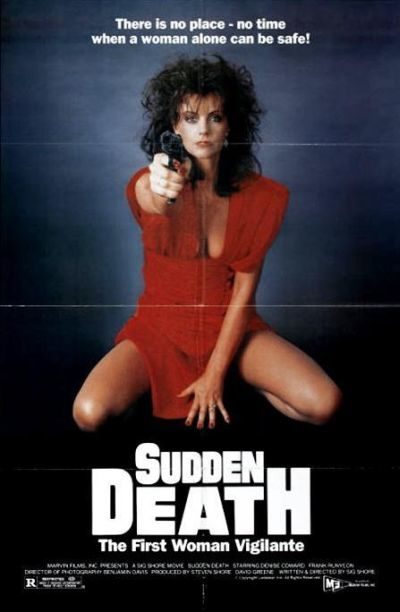 The star of this rape-revenge film, Denise Coward is a former beauty-queen, who was the second runner-up at Miss World in 1978, representing Australia. She didn’t exactly have a long movie career – this and sci-fi flick Galaxy representing roughly the sum total of it. Watching this, it’s easy to understand why, though it would require a significantly better actor than her to make a silk purse from the sow’s ear of a script and direction she is given here. Coward plays Valerie Wells, a career woman in New York who gets into the wrong taxi one night. For it has been stolen by a pair of low-lifes, who rape their passenger before dumping her unconscious body on the street. The cops, in particular Detective Marty Lowery (Runyeon) are sympathetic but over-worked, and Coward’s fiancé is about as much help as a chocolate teapot. What’s a girl to do?
The star of this rape-revenge film, Denise Coward is a former beauty-queen, who was the second runner-up at Miss World in 1978, representing Australia. She didn’t exactly have a long movie career – this and sci-fi flick Galaxy representing roughly the sum total of it. Watching this, it’s easy to understand why, though it would require a significantly better actor than her to make a silk purse from the sow’s ear of a script and direction she is given here. Coward plays Valerie Wells, a career woman in New York who gets into the wrong taxi one night. For it has been stolen by a pair of low-lifes, who rape their passenger before dumping her unconscious body on the street. The cops, in particular Detective Marty Lowery (Runyeon) are sympathetic but over-worked, and Coward’s fiancé is about as much help as a chocolate teapot. What’s a girl to do?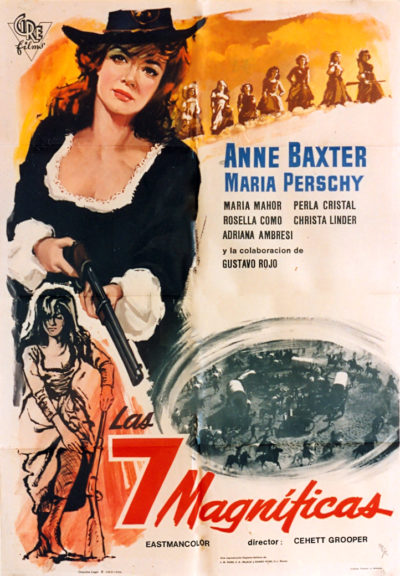 A wagon train on its way West to California is besieged by multiple waves of Apaches. Between attacks, the seven women among the settlers are hidden in a nearby cave, but the next assault proves terminal, and the women are left, alone and deep in enemy territory. The only hope for this band of largely unprepared women, is to strike out across a hostile landscape. They’ll need to cross 100 miles between them and the nearest settlement, Fort Lafayette, while fending off further native attacks.
A wagon train on its way West to California is besieged by multiple waves of Apaches. Between attacks, the seven women among the settlers are hidden in a nearby cave, but the next assault proves terminal, and the women are left, alone and deep in enemy territory. The only hope for this band of largely unprepared women, is to strike out across a hostile landscape. They’ll need to cross 100 miles between them and the nearest settlement, Fort Lafayette, while fending off further native attacks. It kinda works, mostly for the dynamics between the trio of leading ladies. At first, Cali’s approach seems sensible, arguably a legitimate way to make the best of a bad situation. However, a change in the scenario shifts things seismically, and even the toughest of her supporters would have to admit an unpleasant streak of psychopathy is opened in her make-up. Evil sometimes wears a pretty face, and Turshen reminded me more than a little of Denise Richards in Wild Things – manipulative and . Less successful, to the point of entire irrelevance, is the boyfriend who shows up and yells for a bit. I suspect, given the slight running time of 75 minutes, his presence may have been a late-added necessity in order to reach feature length.
It kinda works, mostly for the dynamics between the trio of leading ladies. At first, Cali’s approach seems sensible, arguably a legitimate way to make the best of a bad situation. However, a change in the scenario shifts things seismically, and even the toughest of her supporters would have to admit an unpleasant streak of psychopathy is opened in her make-up. Evil sometimes wears a pretty face, and Turshen reminded me more than a little of Denise Richards in Wild Things – manipulative and . Less successful, to the point of entire irrelevance, is the boyfriend who shows up and yells for a bit. I suspect, given the slight running time of 75 minutes, his presence may have been a late-added necessity in order to reach feature length. Maggie Marvel (Beretta) is a single mom, with all the issues that implies. She has to try and juggle work with raising young daughter, Samantha (Katherine Brennan), on her own. But complicating matters enormously, is that work in this case is operating as an assassin for criminal kingpin Dutch – who also happens to be Maggie’s estranged father, who sent her away after his wife (and thus, Maggie’s mother) tried to poison him. Maggie was raised instead by Dixie Brown (Barron), who also works for Dutch as a killer. For he believes women are better at the job, and though he employs men, such as Bobby Shea (Dan Brennan) and his brothers, they are kept for non-lethal work. However, this line gets blurred as Bobby has fallen for Dixie, and his request that Maggie work with him on a bank robbery – hoping to make Dixie jealous – kicks off a series of events that threaten to destroy Maggie, her family and the entire crime organization.
Maggie Marvel (Beretta) is a single mom, with all the issues that implies. She has to try and juggle work with raising young daughter, Samantha (Katherine Brennan), on her own. But complicating matters enormously, is that work in this case is operating as an assassin for criminal kingpin Dutch – who also happens to be Maggie’s estranged father, who sent her away after his wife (and thus, Maggie’s mother) tried to poison him. Maggie was raised instead by Dixie Brown (Barron), who also works for Dutch as a killer. For he believes women are better at the job, and though he employs men, such as Bobby Shea (Dan Brennan) and his brothers, they are kept for non-lethal work. However, this line gets blurred as Bobby has fallen for Dixie, and his request that Maggie work with him on a bank robbery – hoping to make Dixie jealous – kicks off a series of events that threaten to destroy Maggie, her family and the entire crime organization.